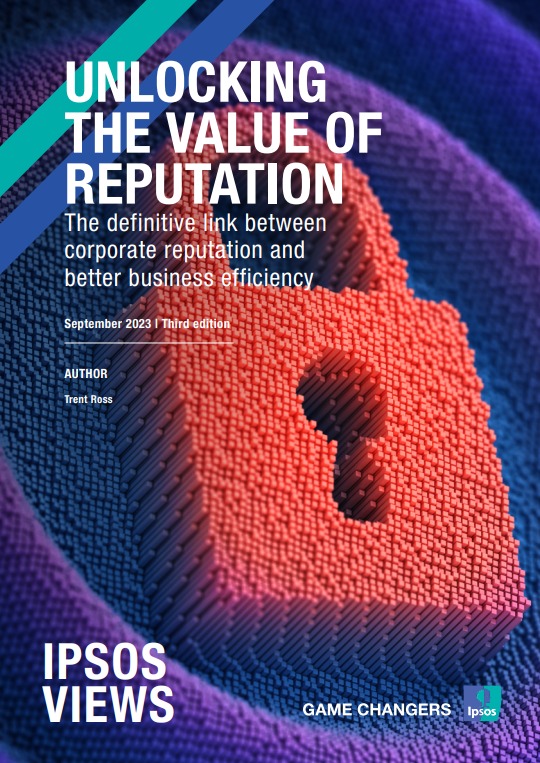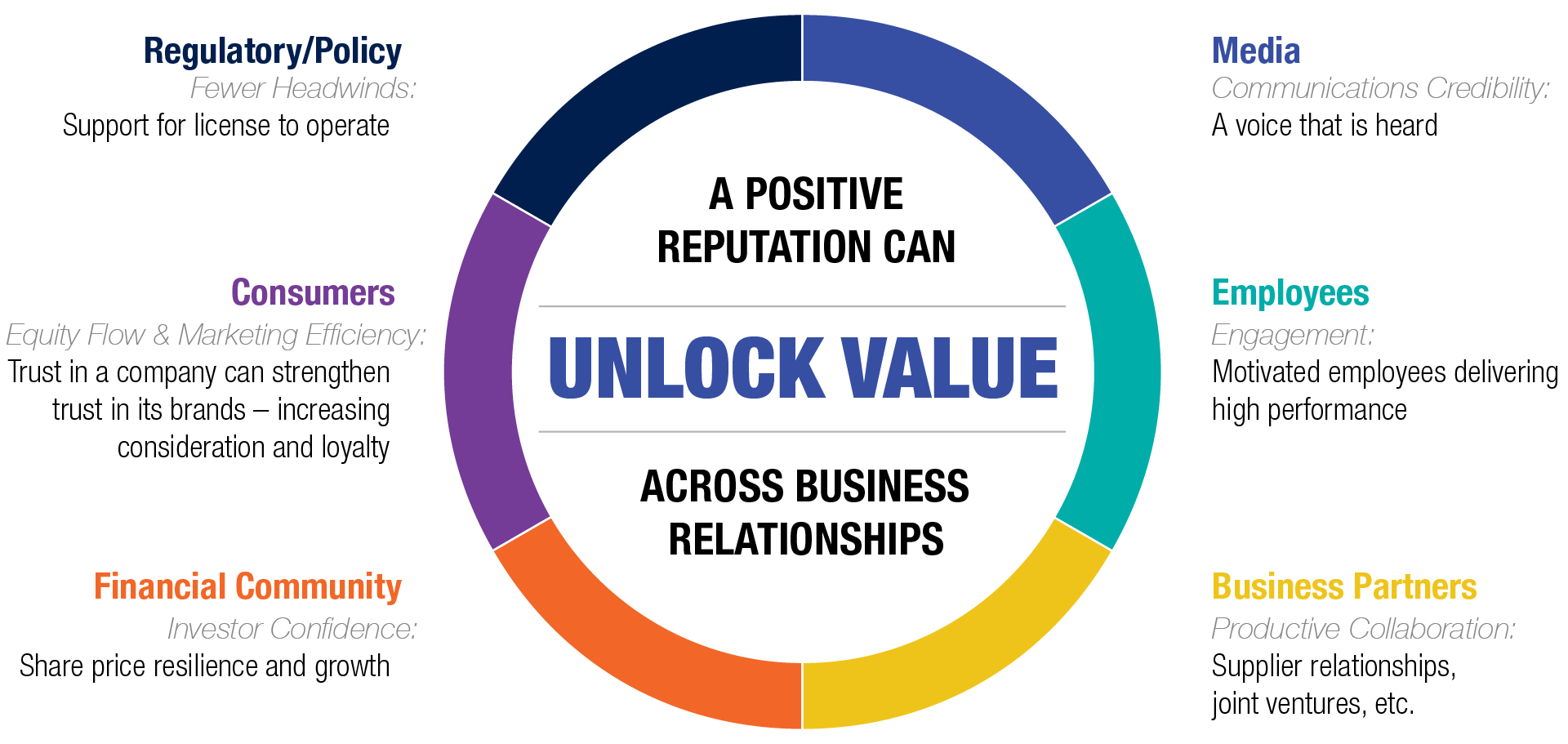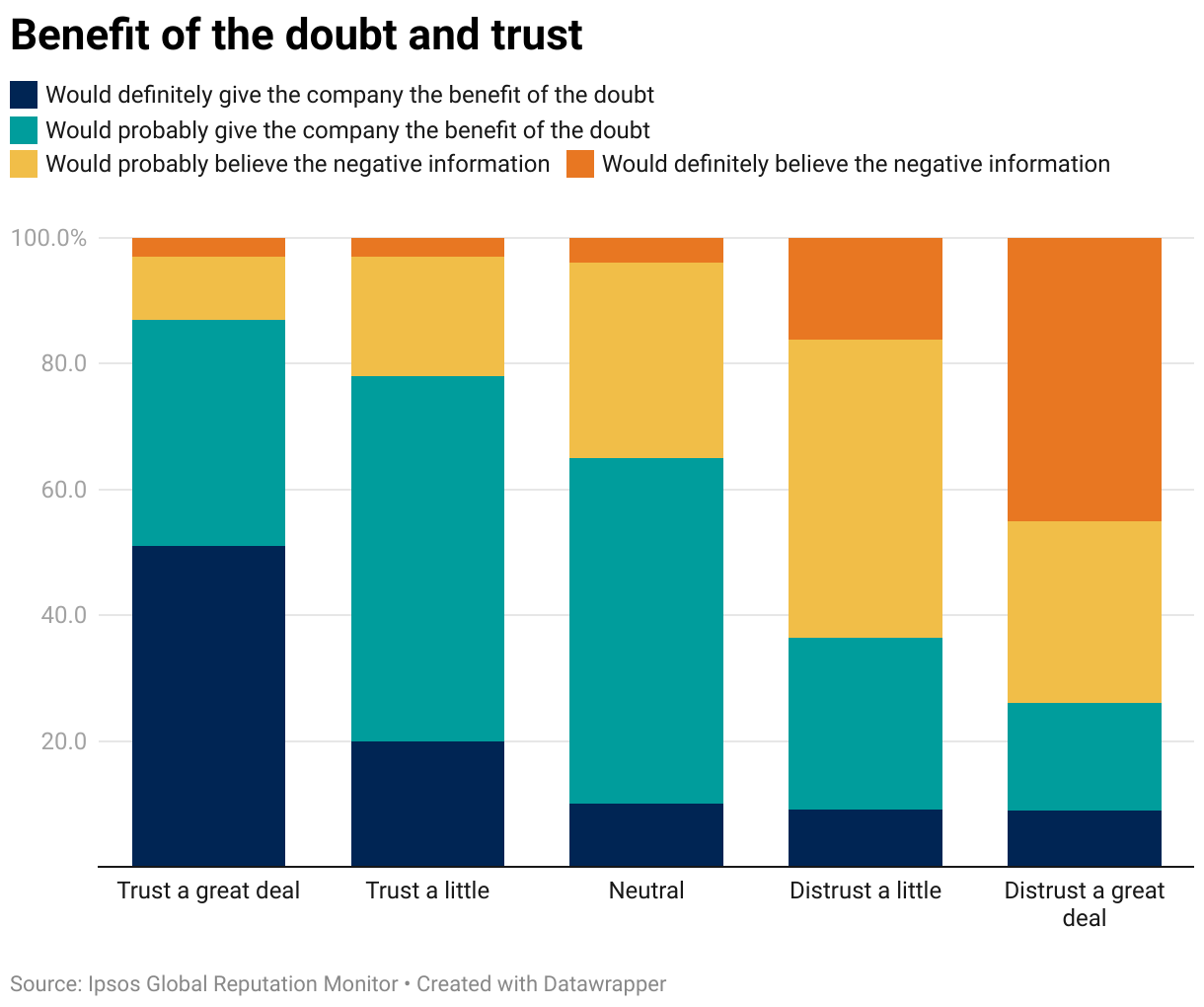Building reputation in 2023: the link between corporate reputation and business efficiency
 Reputation is the grease on the wheels of industry. Building your reputation makes your relationships more efficient with each stakeholder group – regulators are less likely to interfere with your business, partners are more likely to give you good terms, the media is more likely to listen to your side of the story, and consumers are more likely to believe and act on your advertising.
Reputation is the grease on the wheels of industry. Building your reputation makes your relationships more efficient with each stakeholder group – regulators are less likely to interfere with your business, partners are more likely to give you good terms, the media is more likely to listen to your side of the story, and consumers are more likely to believe and act on your advertising.
Our research shows conclusive proof in the relationship between corporate reputation and business efficiency. Building trust gives companies an advantage in telling their story in times of crisis, marketing their products efficiently, and turning stakeholders into advocates.
 Globally, people are generally willing to give companies the benefit of the doubt (21% definitely and 49% probably). This willingness is tightly linked to overall trust. Among people who trust a company a great deal, 51% say they would definitely give that company the benefit of the doubt in a crisis. Among people who are feel neutral towards a company, that percentage shrinks to just 10%.
Globally, people are generally willing to give companies the benefit of the doubt (21% definitely and 49% probably). This willingness is tightly linked to overall trust. Among people who trust a company a great deal, 51% say they would definitely give that company the benefit of the doubt in a crisis. Among people who are feel neutral towards a company, that percentage shrinks to just 10%.

Trust also has an enormous impact on advertising and product use. People who trust a company are more likely to see the ads in the first place, to find the ads memorable, and to believe the ads. For example, of those who “trust a great deal” in a company, 94% are likely to believe the ads they see, compared to 48% of those who “distrust a little” and 32% of those who “distrust a great deal”.
Creating a marketing efficiency index
Companies seek to build marketing efficiency (which at the corporate level is defined as the ratio of advertising spend to overall sales) as a benchmark for success. In our work, we have shown a strong relationship between trust and marketing efficiency at the aggregate level. We have drawn on this experience to create a marketing efficiency index that replicates this relationship at the individual level and facilitates cross-industry and cross-market analysis.
For corporate communications professionals, the value of being trusted is clear. The benefits from increased marketing efficiency and consumer engagement, and the value of nurturing deep reserves of goodwill, represent a strong business case for investing time, money and resources in the actions and messaging that will help to foster trust.
Five key takeaways
- Corporate reputation strongly impacts business efficiency. A strong reputation cultivates better relationships with important stakeholders – those whose support helps a business to deliver its objectives.
- Trust increases marketing efficiency across industries and geographies; consumers are more likely to engage with and act upon advertising from the companies they trust. Trust also positively impacts buyers' feelings towards a company’s products/services and their willingness to pay a premium.
- Building trust builds up reserves of equity companies can use for improving business performance, alongside better potential outcomes when facing unforeseen difficulties.
- Having a good reputation ensures a company’s voice is heard during crises and that they are given the benefit of the doubt. Trust plays a significant role in this, acting as a safety net, with over half of the people who trust a company likely to support it during a crisis.
- Building a strong reputation to gain benefit of the doubt is crucial in all sectors, especially high-risk ones. Trust and benefit of the doubt are highly correlated; as trust increases, so does the potential for support in challenging times.

